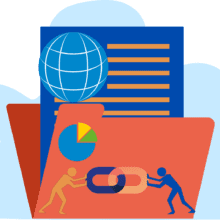Understand How SEO Works 1st so you can Make it Work for YOU.

Understand How SEO Works FIRST so you can make it work for you
Do you understand how SEO works?
If you have a website, you have probably heard of a lot of discussion about SEO (search engine optimization). This concept is not really about programming or anything highly technical. The basic premise is to make your website as easy as possible for the search engines to index. The idea is simple, but you have to understand how the search engines do it. This article will help you to understand how SEO works so you can make it work for you.
Disclosure: This page may contain affiliate links. These are links to sites that pay us commissions. We do not endorse these sites unless otherwise stated plainly.
The search engine crawlers look at one thing in your website. They look at the mark-up of your content. This is a coding language like HTML or PHP. They do not look at anything that is not text. So any images, videos, sound files and non-text content will be ignored.
 When a search engine spider crawls over the text content, it is collecting data and content and storing it in its enormous database. If they come to a mark-up that is a link, they will follow that link to the landing page. These links are recorded, and the contents of the linked page are also indexed and stored. These tiny robots work 24 hours a day, seven days a week, continuously.
When a search engine spider crawls over the text content, it is collecting data and content and storing it in its enormous database. If they come to a mark-up that is a link, they will follow that link to the landing page. These links are recorded, and the contents of the linked page are also indexed and stored. These tiny robots work 24 hours a day, seven days a week, continuously.
When the search engine robot reads content on a webpage, it reads like how any person would read, from the top, left to right, all the way to the bottom. If it detects mark-up for columns, it will read the web page column by column. It records everything that it comes across. As it records, it uses its algorithm to judge the relationship of the linked pages on topic relevance. When it detects an incoming link that has the same topic, that incoming link is given higher weight.
Knowing how the search engine crawler behaves, you can help it around in your website by organizing clear direction for the crawlers. Navigation menus are important to provide links to important sub-pages. Creating a sitemap that includes links to every page would be a helpful tool.
Your best keywords should be in your title because the crawler sees this as the basis of the webpage’s topic. Keep it to a two to three keyword word phrase that represents the topic the best.
Your meta description tag is another area that the crawler looks at to gather information about the topic of the webpage. Use a couple of well-written sentences with good keywords. The title and description are indexed first because they are coded at the top of your page under the “head” tag.
As the crawler continues to crawl over your main content, it continues to collect data to determine the relevance of the content in relation to the title and description. Try to stick with one topic per page. If you have more than one topic, create a new page. This helps keep things organized and separated for the crawlers so they don’t get distracted by different content on the same page.
It’s important to remember to keep your website simple and easy to read. It makes it better for your human readers, and it also helps the crawlers to give your page the best rank possible based on your content. If you can achieve that, then you’ve figured out how to the search engine optimization game works.
When you understand how SEO works, it’s not difficult but it is work. Make it an integral part of your weekly schedule and don’t skip it! Persistence is the key in so many areas of life and work. Persistence really is, above all, what makes SEO work in the long run.
It’s great to understand how SEO works, but it won’t work unless you work. Yes, I am repeating myself! It cannot be stressed enough how important this is. So as they say in the UK, “Keep calm and carry on.” Every step you take brings you closer to success.
Tell us a bit about your own strategies. Are you achieving the success you want? Let us know about it in the comments. Make sure you leave your link!





